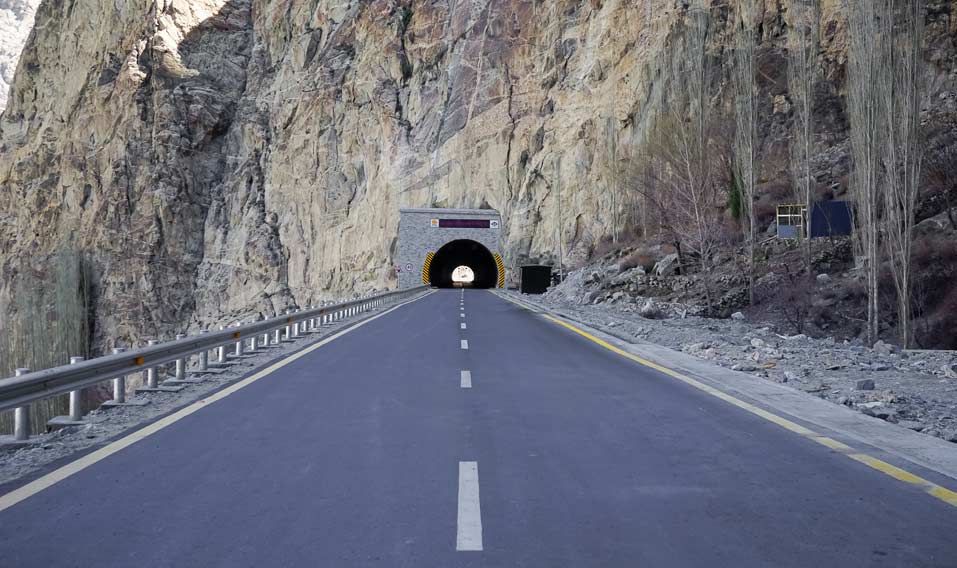A few Pakistani senators are crying foul at the China-Pakistan Economic Corridor (CPEC) under construction in Pakistan. The senators charge that the Chinese project could become the new 'East India Company' of predatory nature—the erstwhile 'East India Company was forerunner to the British rule in the subcontinent.
CPEC has been glorified by many Pakistani leaders as a game changer for the region. However, the senators have raised reservations about the $46 billion project saying it would be disastrous if Pakistan has to repay the whole money invested by China. The IMF too had warned Pakistan about its burden of repayment of CPEC. Security threats and conflict over fixing tariff of power generated from the project have raised concern about its future development.
The biggest China-funded overseas project passes through the entire Pak territory, splitting the country into two halves. Though Pakistan has fielded more than 14,500 security personnel to guard 7,000 plus Chinese workers, China has demanded increased security cover. The huge displacement of people without proper compensation has angered people living in one of the toughest terrains in the world. Locally and internationally, Balooch and Sindhi leaders are continuing their protests against the corridor.
Pakistan Army offensives have considerably reduced the threat from Taliban militants. But there is heightened threat to the corridor from Baluchi separatists. Though Gwadar port, the grand entry point to the Arabian sea, is situated in Baluchistan, the region stands to gain not much from the corridor. They typically get a raw deal at the hands of Pakistan's Planning Commission. Baluchistan's only benefit from the corridor is access to water supply.
Bane or boon?
CPEC is an ambitious plan of 3,218km-long corridor built as part of China's Silk Road project officially called Belt and Road. It connects Xinxiang in China with Gwadar port in Baluchistan. China is investing in huge infrastructure consisting of highways, railways, ports, pipelines, power, transport and telecommunications over a period of 15 years. Direct access to the Arabian sea through the Pakistani land will help Chinese goods reach Europe, Africa quickly. The pipelines will carry oil from the Middle East to China faster and cheaper.
Mineral-rich Baluchistan is Pakistan’s largest province and the population is mostly Sunni Muslim. Owing to poor education, feudal tribal culture, corruption, the region is more underdeveloped than other areas of Pakistan. China has an eye on its natural resources like gold and copper.
China-Pakistan trade is skewed in China’s favour. A Free Trade Agreement with China has not benefited Pakistan. As of 2014, China’s export to Pakistan was $9.3 billion whereas Pakistan exported goods worth $2.62 billion to China.
There are huge expectations about the corridor bringing economic prosperity to Pakistan. CPEC is estimated to create 7,00,000 direct jobs before 2030. The power projects adding about 10,400 MW to national power grid and reduce power scarcity by 7,000 MW.
India’s concerns
India had initially raised objections about CPEC running through Pakistan occupied Kashmir. However, Indian High Commissioner to Pakistan T.C.A. Raghavan has been quoted as saying that India had no worries about the construction of CPEC as an economically strong Pakistan would bring stability in the region.
About 72km away from Gwadar port, India is constructing Iran's Chabahar port to get sea-land route access to Afghanistan, Central Asia, Russia and further beyond.
Losing sleep
Initial jubilation in Pakistan over the grand deal with China has given way to agony. The likelihood of the Chinese dragon dictating terms has begun to haunt its leaders now.
While many in Pakistan are worried about the loss of freedom due to domineering Chinese presence across the whole land, the regions are concerned about the shared benefits. Uncertainties about Pakistan's culture and religious values are overshadowing the potential economic benefits of the project. It is evident in the words of its senators comparing CPEC to East India Company.





